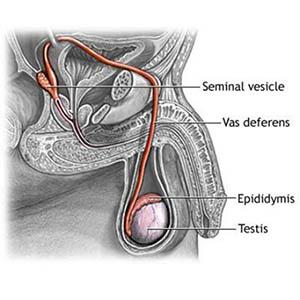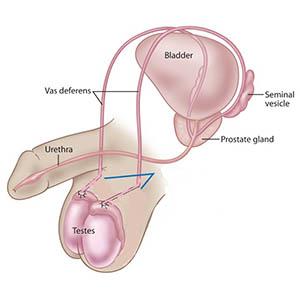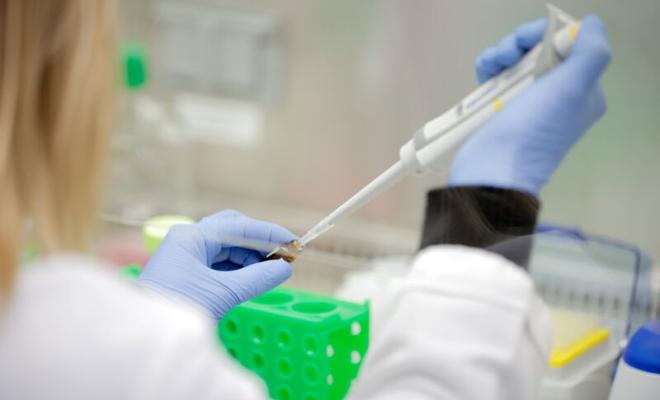The Biology of Male Reproduction and CF
To understand the inner workings of infertility in men with cystic fibrosis, it is helpful to first understand the biology of the male reproductive system. It has three primary parts: the testicles, the epididymis and the vas deferens (see Figure 1).
Sperm (the reproductive cells) are developed in the testicles. The epididymis is a series of tubes that sit behind the testicles where sperm are stored until they are made available at ejaculation. The vas deferens is a long tube that connects the epididymis to the ejaculatory ducts and acts as a canal so that mature sperm can come through the penis during ejaculation (see Figure 2).
Most men with CF (97 to 98%) are infertile because of an absence of the sperm canal, known as congenital bilateral absence of the vas deferens (CBAVD). The sperm never make it into the semen, making it impossible for them to reach and fertilize an egg through intercourse. The absence of sperm in the semen can also contribute to men with CF having thinner ejaculate and lower semen volume.
“My path started with finding a urologist who was familiar with CF, in-vitro fertilization (IVF), and could work with the fertility clinic we had chosen. Thankfully, our clinic had a list of doctors that they worked with in the past who were local. My initial consultation with the urologist went well and after the results of my semen analysis came back, he explained to me that I have obstructive azoospermia. Having obstructive azoospermia meant that I would need to have a surgical procedure to extract sperm for IVF.” — Justin Goldsmith, adult with CF, from the CF Community Blog
The Difference Between Infertility and Sterility
This distinction between infertility and sterility is key to understanding the effects of CF on male reproduction. Even though the vas deferens is missing, the sperm are not. In fact, sperm production in the testicles is normal in 90 percent of men with CF and CBAVD, meaning that most men with CF can still have biological children through assisted reproductive technology (ART). Your doctor should be able to give you a referral to a urologist (or male reproductive expert), who can use medical tests to confirm whether you are infertile.
Although the cause of CBAVD is not conclusively known, it is thought to be associated with cystic fibrosis transmembrane conductance regulator (CFTR) gene mutations that also cause problems in the pancreas and lungs. Since CBAVD is believed to be caused by similar genetic patterns found in CF, it is incredibly important for men who have been diagnosed with CBAVD to also get tested for CF. Because CBAVD often has no external signs or symptoms and still allows men to have a fulfilling sex life, some men may not even find out that they have CF or CBAVD until they have trouble conceiving a child.
Even though most men with CF are infertile, some do still have sperm present in their ejaculate. If your infertility has not been confirmed by medical tests, you should be sure to use contraception to prevent the possibility of an unplanned pregnancy.
Another condition that men with CF may experience, although it is rare, is a type of infection known as male candidiasis. It may display symptoms such as sores on the penis, irritation, and itching.





